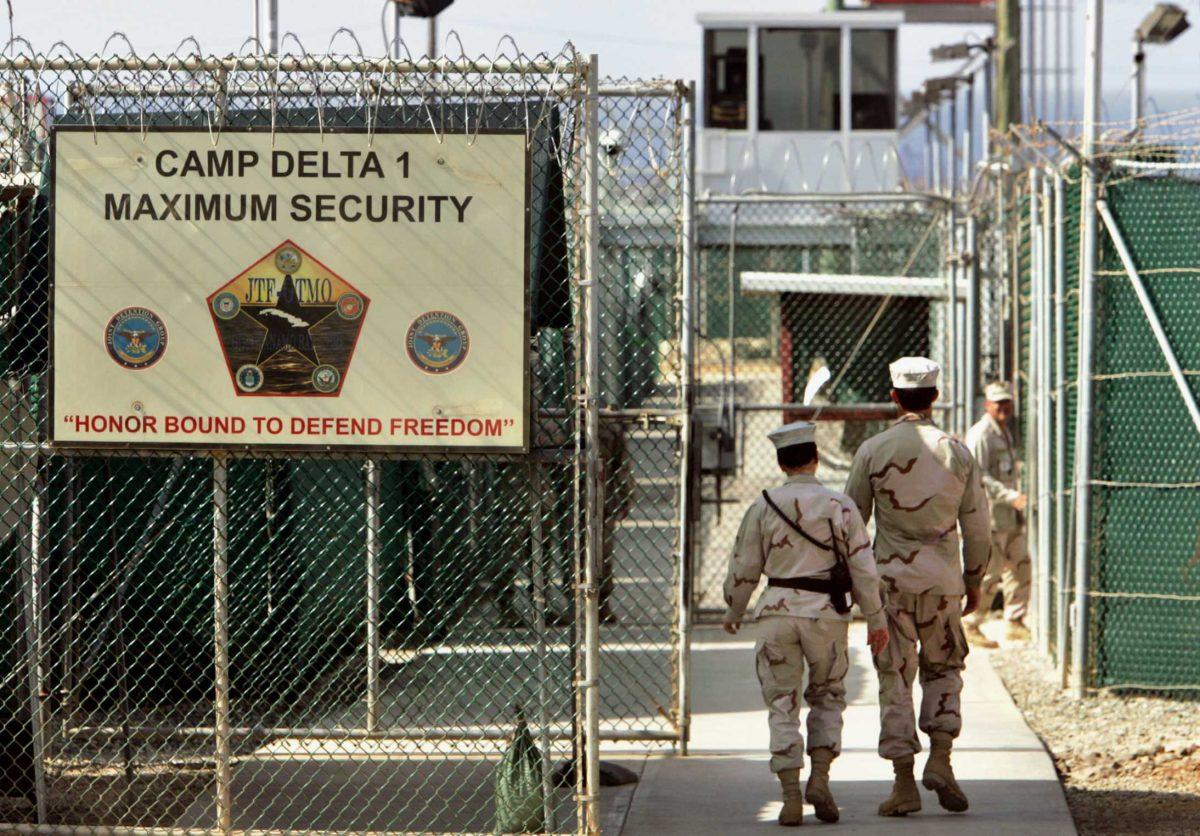As far as the Pentagon is concerned, you don’t need to know what goes on inside Guantanamo Bay. In fact, you don’t even need to know what goes on inside Angola Prison.
Pentagon officials are blocking U.N. torture investigator Juan E. Mendéz from interviewing or meeting inmates at Guantanamo Bay. In addition, the U.S. has, for years, denied Mendéz access to regular U.S. prisons.
That the Pentagon will not allow an accomplished U.N. investigator access to its prison system is a clear indication that the U.S. has something to hide when it comes to the treatment of prisoners.
Perhaps it’s because the Pentagon does not want U.S. citizens to think any harder than they have to about what goes on at Guantanamo. Force-feeding, widely regarded as torture, is one practice U.S. officials would likely want to keep under wraps. Then, there are the facts that lawyers are being prevented from gaining access to their clients, and the majority of inmates have not even been charged with crimes.
And we do not limit the mistreatment of prisoners to accused terrorists.
Mendéz has kept up his fight to gain access to U.S. prisons in part because of his interest in the prevalent use of solitary confinement in our country.
Isolation is considered by many human rights organizations to be a form of torture. According to PBS, hallucinations, panic attacks, overt paranoia, diminished impulse control, hypersensitivity to external stimuli and difficulties with thinking, concentration and memory are all well-documented side effects of solitary confinement.
U.S. prisons do not limit the use of solitary confinement to adults. Juveniles often receive isolation as punishment for even minor offenses. NPR has documented several cases where young people have been subjected to extended stays in solitary confinement.
It’s hard to believe that a nation ostensibly dedicated to fighting for freedom and justice around the world would maintain a facility like Guantanamo Bay. It’s even more incredible that the U.S. would deny access to reputable investigators seeking to expose the conditions inside our prisons.
Perhaps our leaders are truly unaware of what goes on in the prison system. Judging by the official attitude and rhetoric surrounding the institution, that certainly seems to be the case.
The ACLU estimates a staggering 80,000 people are kept in solitary confinement in the U.S. on any given day, more than in any other country. Yet last October, a U.S. spokesperson testified before the U.N. Committee Against Torture that “no systematic use of solitary confinement exists in the United States.”
The attitude of U.S. officials toward Guantanamo Bay is even more startling.
Newly elected Sen. Tom Cotton of Arkansas said during a Senate hearing that his only problem with Guantanamo is that it has too many empty beds.
With regard to the prisoners there, Cotton went on to say, “As far as I’m concerned, every last one of them can rot in hell. But as long as they can’t do that, they can rot in Guantanamo Bay.”
This is not how a compassionate human being speaks, much less a person who claims to represent the U.S.
Our criminal justice system is a shameful institution that stands in stark contrast to everything we claim to stand for as a nation.
I am all for fighting terrorism. But when we turn to the same clandestine, undemocratic torturous methods used by our so-called enemies, what makes us any better?
When we lock thousands of children in isolation for weeks or months at a time, what makes us any better?
The mistreatment of prisoners is hardly a matter of national security. It would seem that the Pentagon is simply attempting to save face by obscuring its cruelty.
People need to know what happens to our own citizens in U.S. prisons, as well as the alleged terrorists at Guantanamo Bay. The Pentagon must allow U.N. investigators in.
Allowing access and transparency is a show of good faith that the U.S. is willing to change. It’s also a sign that we are accountable for our actions.
The issue is especially pertinent in Louisiana, which holds the dubious distinction of being the prison capital of the world. Yes, we imprison more of our own citizens here than any other place on earth.
But there is some hope for the future. Mendéz was able to gain access to California’s Pelican Bay State Prison by visiting as an expert rather than a U.N. investigator. Civil rights advocates expect to use his findings in a class-action lawsuit that will challenge solitary confinement as unconstitutional.
The U.S. is mistreating an astonishing number of people inside its prison system. We can hide it, and we can lie about it, but the truth will come out eventually. The Pentagon and U.S. officials can go willingly and take responsibility for their actions, or they can be dragged kicking and screaming into the light.
Our reputation is in their hands.
Alex Mendoza is a 22-year-old political science and international studies senior from Baton Rouge. You can reach him on Twitter @alexmendoza_TDR.
Opinion: U.S. officials should stop obscuring facts about prisoner mistreatment
FILE – In this June 27, 2006 file photo, reviewed by a U.S. Department of Defense official, U.S. military guards walk within Camp Delta military-run prison, at the Guantanamo Bay U.S. Naval Base, Cuba. The Supreme Court is allowing the Obama administration to keep secret photographs and videotapes of a Guantanamo Bay detainee identified as the would-be 20th hijacker in the Sept. 11 terror attacks. The justices on Monday turned away an appeal from a human rights group that argued the release of videotapes and photographs of the interrogation and confinement of Mohammed al-Qahtani would serve the public interest. The Center for Constitutional Rights has accused the FBI and military personnel of subjecting al-Qahtani to isolation and aggressive interrogation techniques in 2002. (AP Photo/Brennan Linsley, File)








